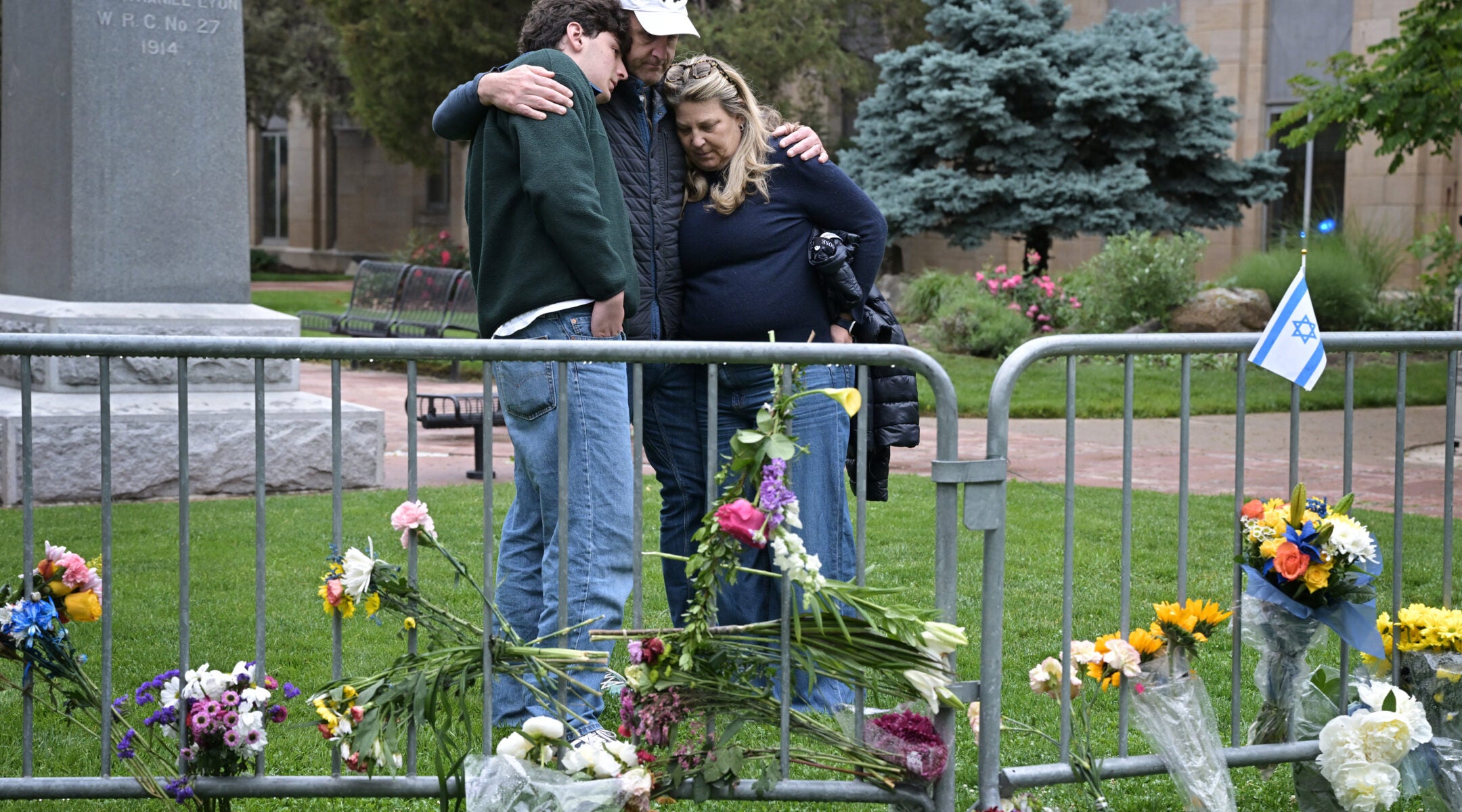I am Black. I am Jewish. I work in the field of hate crimes not only as a professional who responds to incidents, builds coalitions and educates others but as someone who has lived their reality. I carry it in my skin. In my breath. In my children’s safety plans. I don’t need a white paper to define what I already feel in my blood and bones. I know what hate looks like.
When Black people are murdered in Buffalo while grocery shopping, we do not sit in circles wondering whether we can really call it racism. We do not write op-eds asking for nuance. We do not entertain long think-pieces parsing whether it might have been just a tragedy or mental health-related. No. We say: This was a racist, anti-Black hate crime. Because it was.
But as a Jew, I have learned that our community doesn’t always offer that same clarity or solidarity when the hate targets us.
In Washington, D.C., two people who attended a Jewish event, working for peace, were executed outside a Jewish building. It is clear to me and to so many others: This was a hate crime. A Jew-hating hate crime. Call it what it is: antisemitism.
Then on Sunday, as Jews around the world prepared to receive Torah once again on Shavuot, I began receiving messages from friends in Boulder: Molotov cocktails were thrown at people standing in peaceful protest rallying for the return of hostages in Gaza. Every Sunday, in the rain, in the cold, in the fatigue of waiting, these people have shown up. Most of them are Jewish. They are showing up as Jews. Not to make a political statement. To bring our people home. To bring all hostages home. Some are not even Jewish. But their gathering is marked, labeled, targeted as a Jewish event.
The attacker? He didn’t run. He didn’t try to escape. He told police he had been planning this for over a year. The only reason he used a Molotov cocktail instead of a gun? He couldn’t legally get one. But don’t miss this: He stayed. He told us why he did it.
And still within our Jewish community I hear the same questions: Was it really antisemitism? Should we say that out loud? Will it alienate people? Is it too complicated?
Let me be clear: it was antisemitism. Full stop.
To my Jewish community: I write this as one of you. I write this as someone who brings their whole self Black, Jewish, queer, mother, community protector to this moment.
I am tired. Not because the work is hard (it is). But because some of the hardest parts aren’t out there. They are in here with us.
I am tired of watching us question our right to name our own pain.
I am tired of watching us defer, debate, dilute or delay calling out antisemitism because we are afraid it will make us look too aligned with the “wrong people.”
I am tired of watching us abandon the moral clarity we say we had during the civil rights movement, clarity we claim as legacy but fail to live.
Because if we had learned anything from the Black community we so often say we stood beside, we would have learned this: You do not let others define your trauma, your liberation or your language.
You do not water down your truth just because it is inconvenient for others to swallow.
You do not debate whether it’s “really” hate when your people are being hunted in synagogues, at schools, in kosher supermarkets, outside community centers or at a park.
You do not wait for the perfect words that will make everyone else comfortable while your children are crying in fear.
Let me say this plainly: When people target Jews for being Jewish, it is antisemitism. You do not need to know how they feel about Zionism. You do not need to ask what their politics were. You do not need to confirm their interfaith relationships. You need to listen to your gut, your history, your ancestors and name the thing that is happening to us.
We say never again.
But I fear some of us think that means never offending others in the process of protecting ourselves.
To that, I say: We must love ourselves more than we fear backlash.
So I ask you, my community: will you say it with me?
This was antisemitism. And it is enough.
Stop debating it. Start naming it.
JTA has documented Jewish history in real-time for over a century. Keep our journalism strong by joining us in supporting independent, award-winning reporting.







